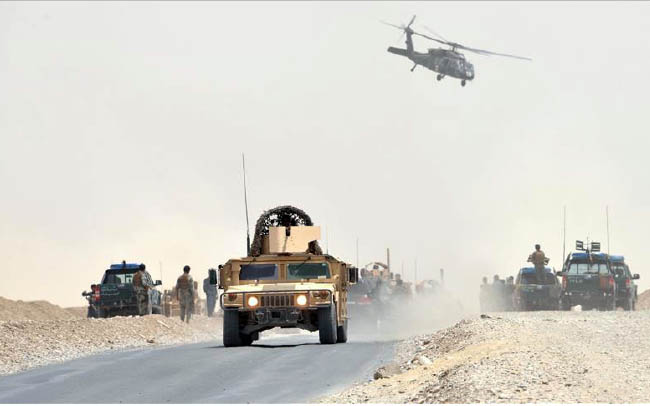As the political history of Afghanistan shows, the dominant political system in our country has not been democracy. Due to various reasons and failures on the part of all stakeholders in the Afghanistan, attempts at establishing and sustaining democratic political system in the country have only lasted for short periods of time. Since 2001, internal dynamics and international pressure and persuasion combined to push Afghanistan again towards the embrace of a political system that is based on the global principles of democracy. That attempt initiated in December 5, 2001 was again renewed through the democratic process of approving the current Afghan constitution by the consensus in January 2004 after the 2003 Loya Jirga.
However, there are tough questions and challenges, central among which is the challenge how to sustain and maintain democracy and turn it into a culture and way of life acceptable and workable for the people of Afghanistan. This involves managing internal tendencies, especially security issues and problems that could impinge on the survival of democracy. This is a matter of national interest and importance that should be of concern to all stakeholders in our country and one that requires comprehensive and committed contribution of all groups and interests that make up the Afghan society.
In addressing the challenge to the survival of democracy in Afghanistan, it is pertinent to consider security issues and problems that have affected or capable of affecting the attitude, confidence and cooperation of all groups and segments that make up the Afghan society. Some of the major security problems currently confronting the nation that have been identified include;Regional and international conflicts, political and electioneering conflicts, socio-economic agitations, ethno-sectarian disputes, ethnic militias, boundary disputes, cultism, criminality and organized crimes and. These challenges individually and collectively constitute threats to the peace, security and development of the country. Undoubtedly, they have implications for the continuity and survival of the nation's nascent democracy. On the other hand we also need to explore how democracy can itself be deliberately constructed as a positive response to these problems.
Since 1747 when Afghanistanwas made a nation by Ahmad Shah Durani, the country mostly has been under authoritarian governments. As a result, the security, political and socio-economic developments are security concerns that were not addressed or managed by the existing state structure at the time.
Currently, Afghanistan faces security issues that are challenging, and indeed, rattling the democratic political system. The main security challenges of Afghanistan include; terrorism as a regional and international powers tool to deter each other in Afghanistan, civil unrests resulting from a number of socio-political developments including ethnic disagreements and national resource contentions. The Afghan civil war was an example of such security breakdown resulting from failure to manage ethnic and social problems. Recent international debates have also raised the need to see security in the broader sense as the struggle to secure the most basic necessities of life; food, fuel, medicine and shelter. This broader human security is important for the attainment of physical and national security and overall peace and development as social unrests arising from the absence of such basic human security can indeed lead to security problems and conflicts.
It is an accepted fact that democracy in its essence implies the interplay of various interests and shades of opinions in the mode of political parties and pressure groups. This interplay must be undertaken in an open, free and fair atmosphere with adherence to such fundamental principles like tolerance, freedom of expression and freedom of choice. Unfortunately, the activities and conducts of past and present participants in the Afghan democratic space have failed to adhere to these critical and key principles.
Meanwhile, because of the opening up of the political space and its encouragement of competition in an environment where the institutions for the management and regulation of the competition are weak, the tendency for competition to escalate to violent conflict is high. There appear to be disequilibrium between the demands for the benefit of democracy and our capacity to respond individually and institutionally to these demands.
Home » Opinion » The Afghan Security Challenges
The Afghan Security Challenges
| Sakhi Rezaie

